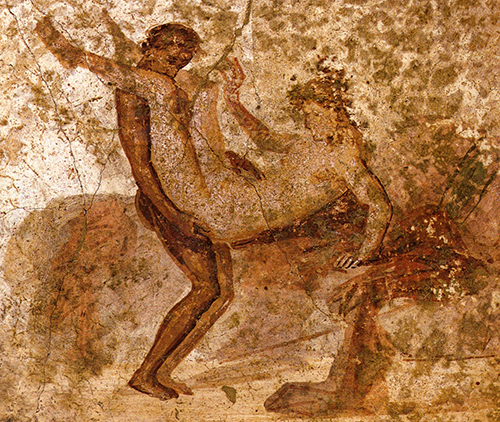
In lines 33-38 of the Odes Horace introduces the image of the opulent builder:
Look where the builder with his horde of navvies
Drives the stone pilings deep into the sea
(The cramped fish lose more sea)
And tips in rubble for the millionaire
Bored with dry land. But Fear and Forebodings
Can climb as many storeys as the owner.
Horace Odes (Penguin 1970 - ed. James Michie)
Horace’s despair of the world around him at times appears to be so overwhelming that even time itself is personified as a corrupting force.
Time corrupts all. What has it not made worse?
Our grandfathers sired feeble children; theirs
Were weaker still – ourselves; and now our curse
Must be to breed even more degenerate heirs.
Horace Odes III. 6. 45-48
Given the level of Horace’s personal despair, it is debatable as to the extent to which his poetry, and others like him, can be used to support social theories concerned with identifying the degree to which luxury dominated late Italo-Roman society. If it is going to have any historical validity beyond its poetic form, then it is essential that the authorial presence is clearly defined and understood. And that is by no means an easy task. For example, how much should we take into account the fact that Horace was the son of a slave who achieved freedman status, or, the fact that the land that was bequeathed to him by his father, was confiscated from him because he took the side of Brutus against the triumvirate. Also, to what extent were Horace’s themes designed to ingratiate and secure the patronage of Augustus and his political supporters? His Sabine farm came from these sources. Can one pick and choose which of his castigations have historical validity and which have not. If one is going to take the hedonistic property owner as more than a topos, then what of Horace’s various disparaging remarks about the women of his age. Should we also regard these as equally literal accounts of their degenerate misconduct? As for example in Odes III.6.21-32:
Watch the grown girl. She revels in being taught
Dances from Asia Minor; she perfects
The arts of provocation; her one thought
From top to tingling toe is lawless sex.
Soon she’s pursuing young philanderers
Among her husbands guests. Careless of whom
She chooses, hugger-mugger she confers
The illicit pleasure in a half-lit room.
Only the husband seeming not to note,
At any man’s command she leaves her place,
Pedlar or captain of some Spanish boat –
Whoever pays the price of her disgrace.
Horace Odes III.6.21-32: (Penguin - ed. James Michie 1970)

Erotic scene Pompeii, Naples Archaeological Museum
|